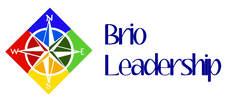 Culture is the very soul of a company. It manifests in the way people (insiders and external suppliers) are treated, the way decisions are made, and the behavioral norms that may be unspoken but expected. Culture is the result of how an organization embodies its core values, and it consequently becomes the company’s collective world view. Walter Robb, Co-CEO of Whole Foods Market, says that culture is “the actual practice of those [core] values over time.” i Culture is intangible but vitally important. According to James Heskett of Harvard Business School, “Culture can account for up to half of the difference in operating profit between two organizations in the same business.” ii Because it has to do with how people, especially employees, are treated, the ramifications of culture pervade all aspects of a business. The productivity, engagement, innovation, and energy of your workforce are a result of the working environment that leaders build. Conscious Culture is one of four tenets of Conscious Capitalism, which we have covered in a previous article. The Conscious Capitalism movement is one of the most exciting developments in business practices in the 21st century, and it deserves the attention of family-owned businesses, many of which are deeply values-driven. Here are five steps to building a conscious culture in your organization:
1 Comment
|
From the desk of
|
Our services |
Our Company |

 RSS Feed
RSS Feed

